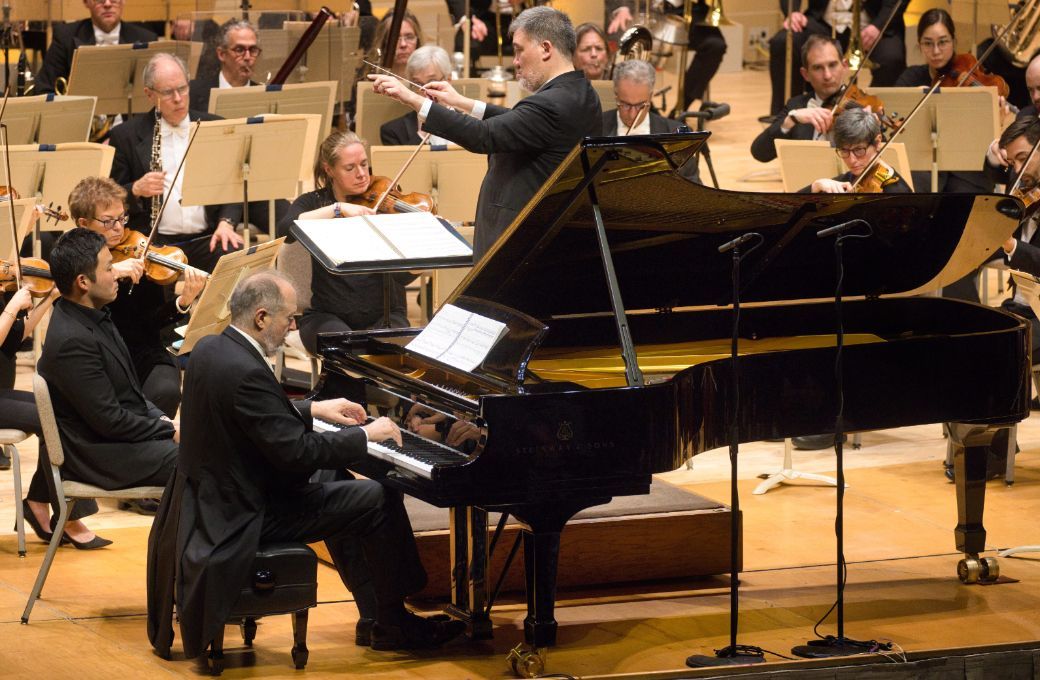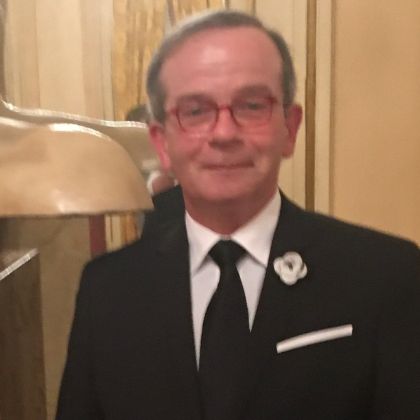Felix Mendelssohn is often credited with codifying the programming format for orchestral concerts. However a perusal of old programs reveals that many conductors did not feel bound by its rules and would even turn Mendelssohn’s paradigm on its head, concluding a concert with an overture. Alan Gilbert’s adventurous program with the Boston Symphony did just that, capping three works new to Symphony Hall with Dvořák’s Carnival Overture.
Lili Boulanger completed D’un matin de printemps two months before her death in March 1918. It provided five minutes of post-impressionist, Technicolor scene-painting bustling with the vitality of a spring morning and proved an apt curtain raiser for the next piece, a different response to spring: Swedish composer Wilhelm Stenhammar’s Serenade in F major. Conceived as “a kind of Florentine dithyramb to spring… something at once sensual and spiritual”, Stenhammer tempers the Dionysian energy of the dithyramb with a touch of Nordic austerity through the form of the serenade.
The influence of Brahms and Stenhammar’s study of Renaissance polyphony is evident, but the voice is completely and engagingly his own. Gilbert brought out the Mendelssohnian lightness to the Overtura’s allegrissimo with its dreamy, diaphanous textures and spritely rhythm, contrasting the languid waltz, darker colors, and heaving sighs of the following Canzonetta. The Scherzo, with its fade-out-fade-in of a jaunty march and chattering winds and strings suggesting a festive celebration, took on a vivid cinematic quality ending on an evanescent, silvery filament from Associate Concertmaster, Alexander Velinzon. The Notturno, with its series of fragmented and fleeting reminisces of previous movements, nodded off to sleep. The cooler quality and color of the horn opening the fifth movement hinted at a change of scene, a new dawn in a new place which set quietly on a gesture of winsome nostalgia.
Justin Dello Joio’s Piano Concerto, “Oceans Apart”, commissioned for Garrick Ohlsson and receiving its world premiere, is a response, in the composer's own words, “to the oceanic vastness of the polarization of our times” and, in a more personal sense, to where the composer and concert music find themselves and where he hopes they’ll be.

That vastness is immediate as the concerto opens with an arresting, Stygian tritone (the most unstable of intervals) from the piano answered by a string glissando so high it sounds electronically generated. Section members play out of synch with each other, overlapping and building up dense textures, a colorful array of percussion growls, rumbles, threatens and and waxes eery and aquatic abetted by a variety of muted brass, ferocious waves swell then crash, occasionally swamping the soloist, whom Dello Joio likens to a surfer negotiating a monster wave’s threatening wall of water. The piano dialogues and contends percussively with the orchestra, often in rising and falling volleys of rapid, virtuosic passagework. Lyrical outburst are fleeting; soloist and orchestra only join briefly before the turbulence returns to separate them. At times, the cry of seagulls unexpectedly rises above the fray. Rhythms, though varied, are relentless, driving the concerto so forcefully it seems much shorter than its 20 minutes. As it abates, the storm drives bits of earlier material transformed back into the flow. Nevertheless, the conclusion is equivocal.
Gilbert, Ohlsson, and the orchestra performed as if this were a familiar piece from the standard repertory. Their commitment and absorption was complete and infectious. Though a new piece as dense as this cannot be completely accessible on the first bounce, they swept the listener along completely immersing them in Dello Joio’s mercurial, visceral tumult. Other orchestras should definitely consider programming this. Hopefully, the BSO will reschedule it as soon as possible.
After all the Sturm und Drang, Dvořák’s overture dispelled the storm clouds with a sunburst of unadulterated joy.


